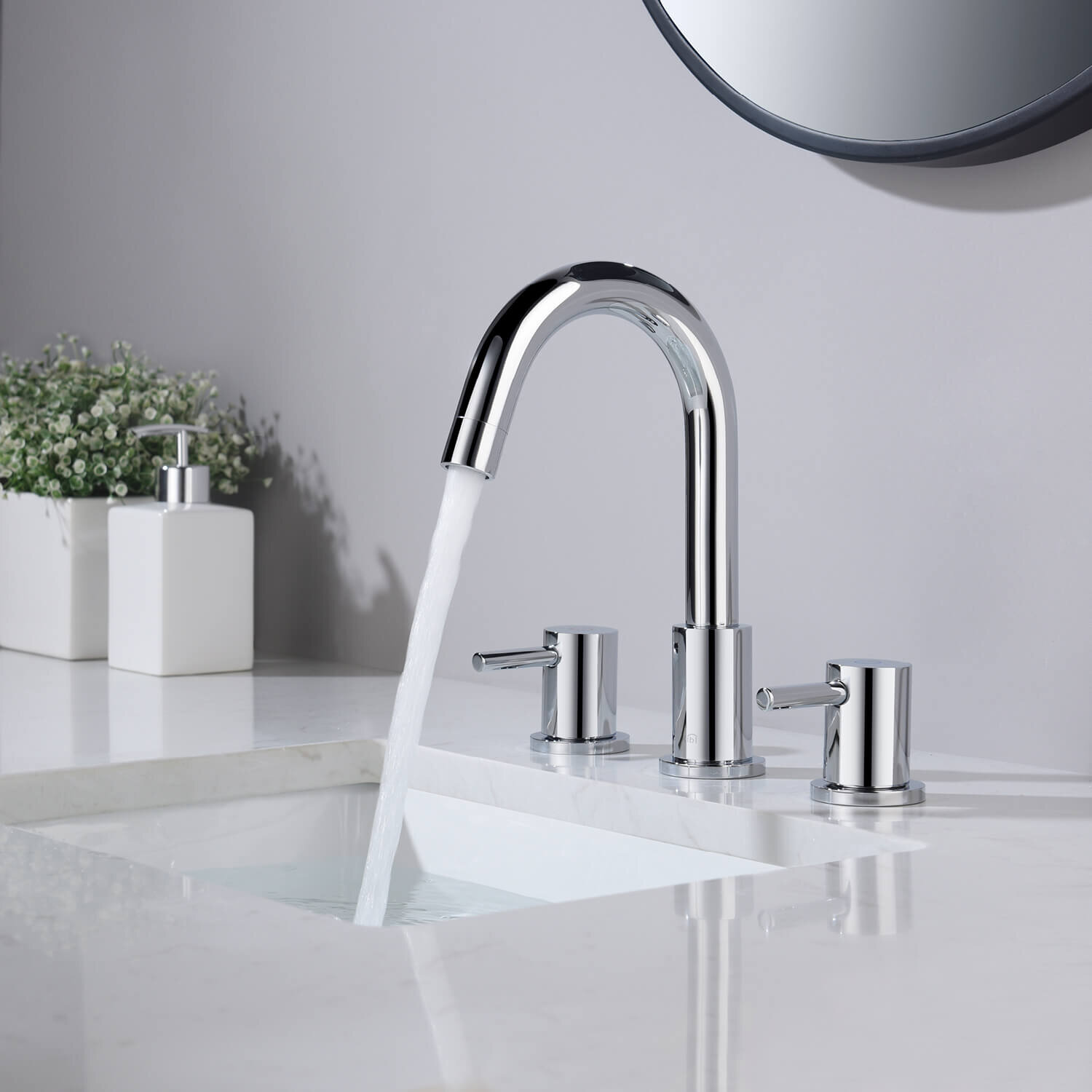Best way to clean faucets? Faucets are an essential element in every bathroom and kitchen, providing water for daily activities. Over time, faucets can accumulate dirt, mineral deposits, and grime, which not only affects their appearance but also impacts their functionality. Regular cleaning is essential to maintain the cleanliness, hygiene, and longevity of your faucets. In this comprehensive guide, we will explore the best methods for cleaning faucets, including gentle cleansers, natural remedies, and preventive measures. Let’s dive into the world of faucet maintenance and unlock the secrets to keeping your faucets sparkling clean.
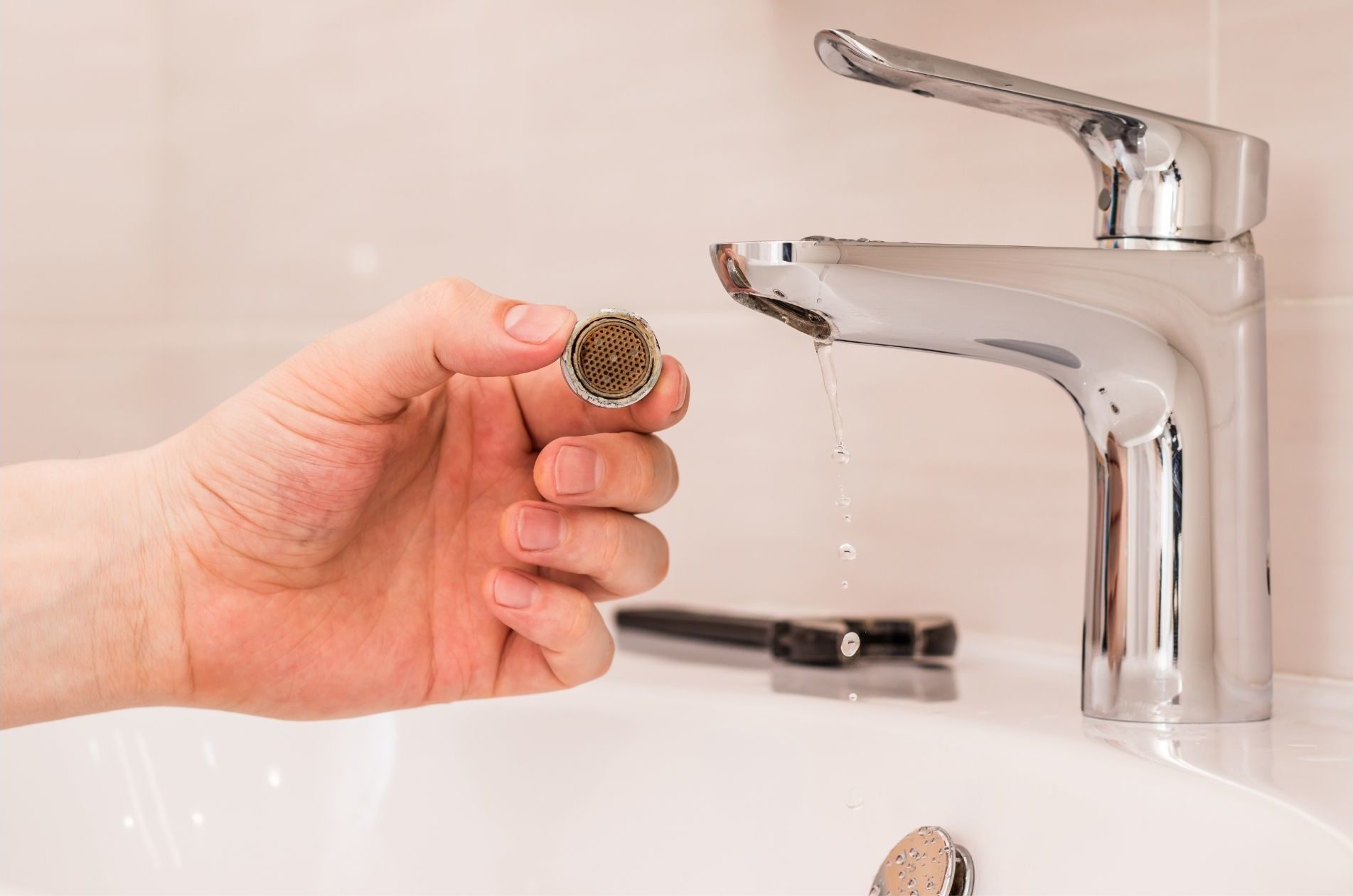
Gather the Right Tools and Supplies:
Before cleaning your pull-down faucets, gather the necessary tools and supplies. Consider the following:
- Soft cloth or microfiber cloth: Use these gentle and non-abrasive materials to avoid scratching the faucet surface.
- Toothbrush or soft-bristle brush: These tools are effective for targeting hard-to-reach areas around handles, crevices, and joints.
- White vinegar or lemon juice: These mild acids work well for removing mineral deposits and stains from faucet surfaces.
- Dish soap or mild detergent: Use a mild soap solution to clean the faucet and remove dirt and grime.
Basic Cleaning Steps:
To clean your faucets, follow these general steps:
- Start by dampening the cloth or microfiber cloth with warm water. Gently wipe the faucet to remove any loose dirt or dust.
- Mix a small amount of dish soap or mild detergent with warm water. Dip the cloth into the soapy solution and wipe the faucet thoroughly. Pay extra attention to areas prone to splashes and fingerprints.
- Rinse the faucet with clean water, ensuring all soap residue is removed. This will help prevent any potential film or residue buildup.
Removing Mineral Deposits:
Mineral deposits, such as limescale or hard water stains, can be stubborn to remove. Consider the following methods:
- Vinegar soak: Soak a cloth or paper towel in white vinegar and wrap it around the faucet. Leave it for approximately 30 minutes to an hour to allow the vinegar to dissolve the mineral deposits. Afterward, wipe the faucet clean with a soft cloth or brush, and rinse with water.
- Lemon juice scrub: Alternatively, cut a lemon in half and rub it directly on the affected areas. The acid in the lemon juice helps break down the mineral deposits. Scrub gently with a soft cloth or toothbrush, then rinse with water.
- Commercial descaler: If natural remedies do not sufficiently remove the buildup, consider using a commercial descaling product. Follow the instructions on the product carefully, ensuring proper ventilation and rinsing afterward.
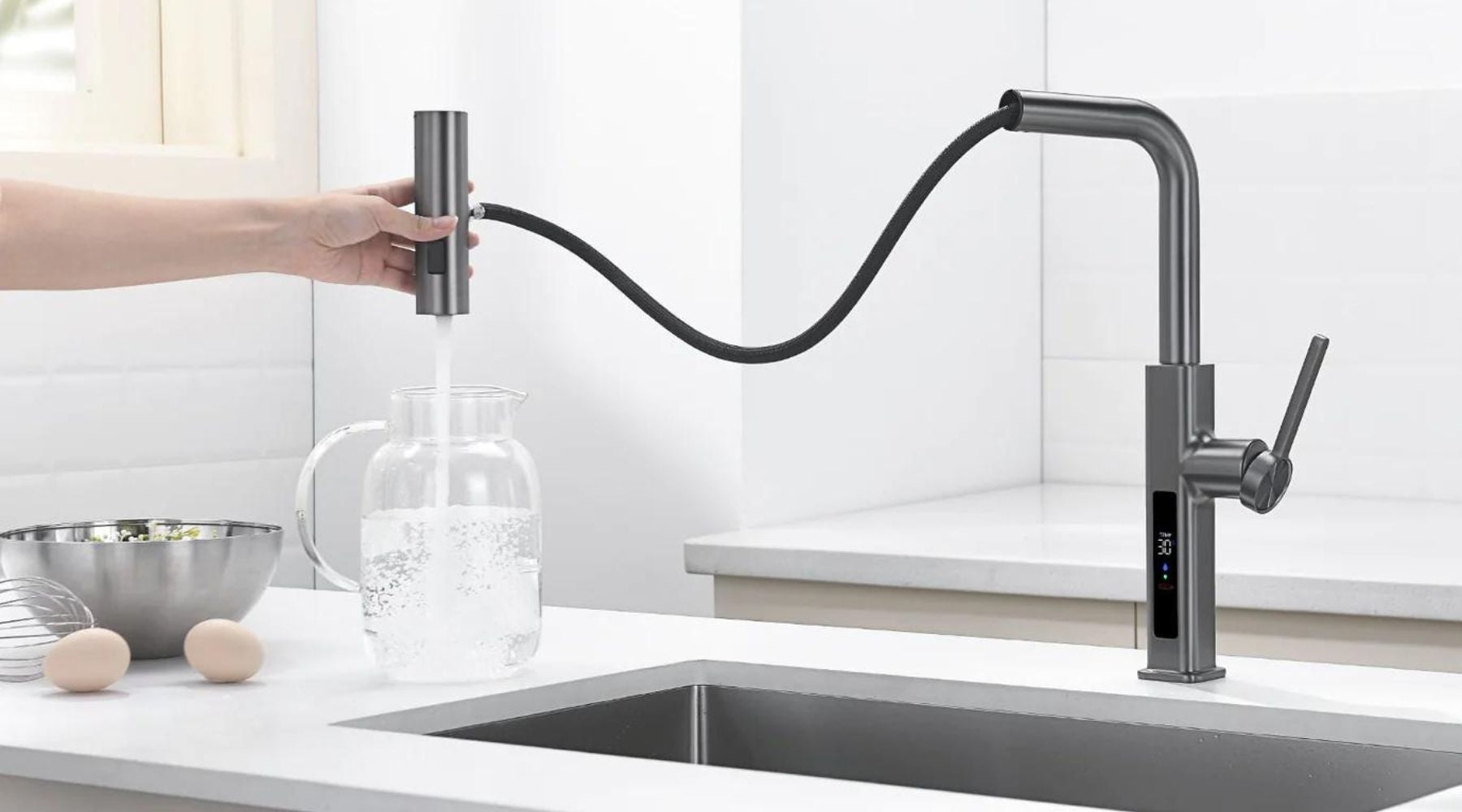
Preventive Measures:
Taking preventive measures can help minimize the buildup of dirt and mineral deposits on your faucets. Consider the following:
- Wipe down the faucets regularly: After each use or at least once a week, wipe down the faucets with a soft cloth or microfiber cloth to remove any water spots or residues.
- Dry after use: After using the steel faucets, gently dry the surface with a soft cloth. This prevents water spots and mineral deposits from forming.
- Install a water softener: If you live in an area with hard water, consider installing a water softening system to reduce the buildup of mineral deposits on your faucets.
Importance of clean faucets
Faucets are not only functional fixtures in our bathrooms and kitchens but also important elements in maintaining cleanliness and hygiene in our homes. Regular cleaning of faucets is vital for several reasons, including ensuring the functionality of the fixtures, preventing the buildup of harmful bacteria and pathogens, promoting water conservation, and enhancing the overall aesthetic appeal of our living spaces.
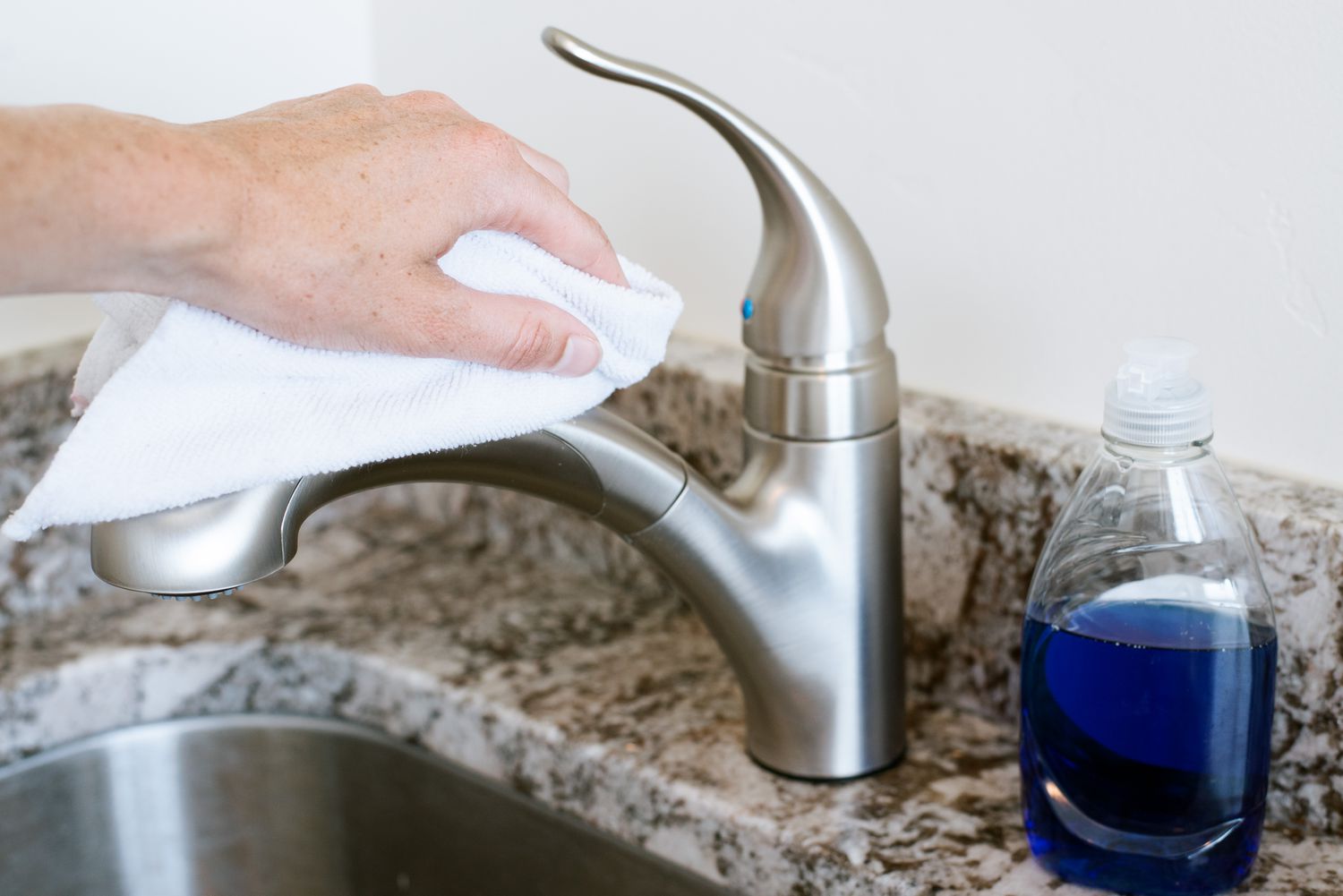
Ensuring Proper Functionality:
Regular cleaning of faucets is crucial for ensuring their proper functionality. Consider the following reasons:
- Smooth water flow: Over time, faucets can accumulate sediment, mineral deposits, and debris, leading to reduced water flow. By regularly cleaning the aerator, spout, and internal components, you can prevent blockages and ensure smooth water flow.
- Prevention of leaks: Neglected faucets may develop leaks due to the buildup of minerals and sediments, causing wear and tear on vital components such as seals and gaskets. Regular cleaning and maintenance can help identify and address potential leaks before they become major issues.
Promoting Hygiene and Health:
Clean faucets are essential for maintaining both personal and environmental hygiene. Consider the following reasons:
- Prevention of bacterial contamination: Faucets, especially in the bathroom and kitchen, are prone to contact with harmful bacteria and pathogens. Regular cleaning helps minimize the risk of bacterial contamination and the spread of illnesses.
- Removal of biofilm: Biofilms, which are slimy layers of microorganisms that adhere to surfaces, can form on bronze faucets. These biofilms can harbor bacteria and contribute to foul odors. Regular cleaning helps remove biofilm and prevents bacterial growth.
- Enhancing water quality: A buildup of sediments, rust, or other contaminants within the faucet can negatively impact water quality. By cleaning faucets, you can ensure cleaner and safer water for drinking, cooking, and personal hygiene.
Water Conservation:
Cleaning faucets can also contribute to water conservation efforts. Consider the following reasons:
- Preventing drips and leaks: Neglected faucets are more prone to developing leaks or drips, leading to wasted water. Regular cleaning and maintenance help identify and repair leaks promptly, reducing water wastage.
- Optimizing flow efficiency: Faucets with mineral deposits or debris buildup may experience reduced flow efficiency, requiring more water to accomplish daily tasks. By cleaning these fixtures, you can maintain optimal flow efficiency and minimize water usage.
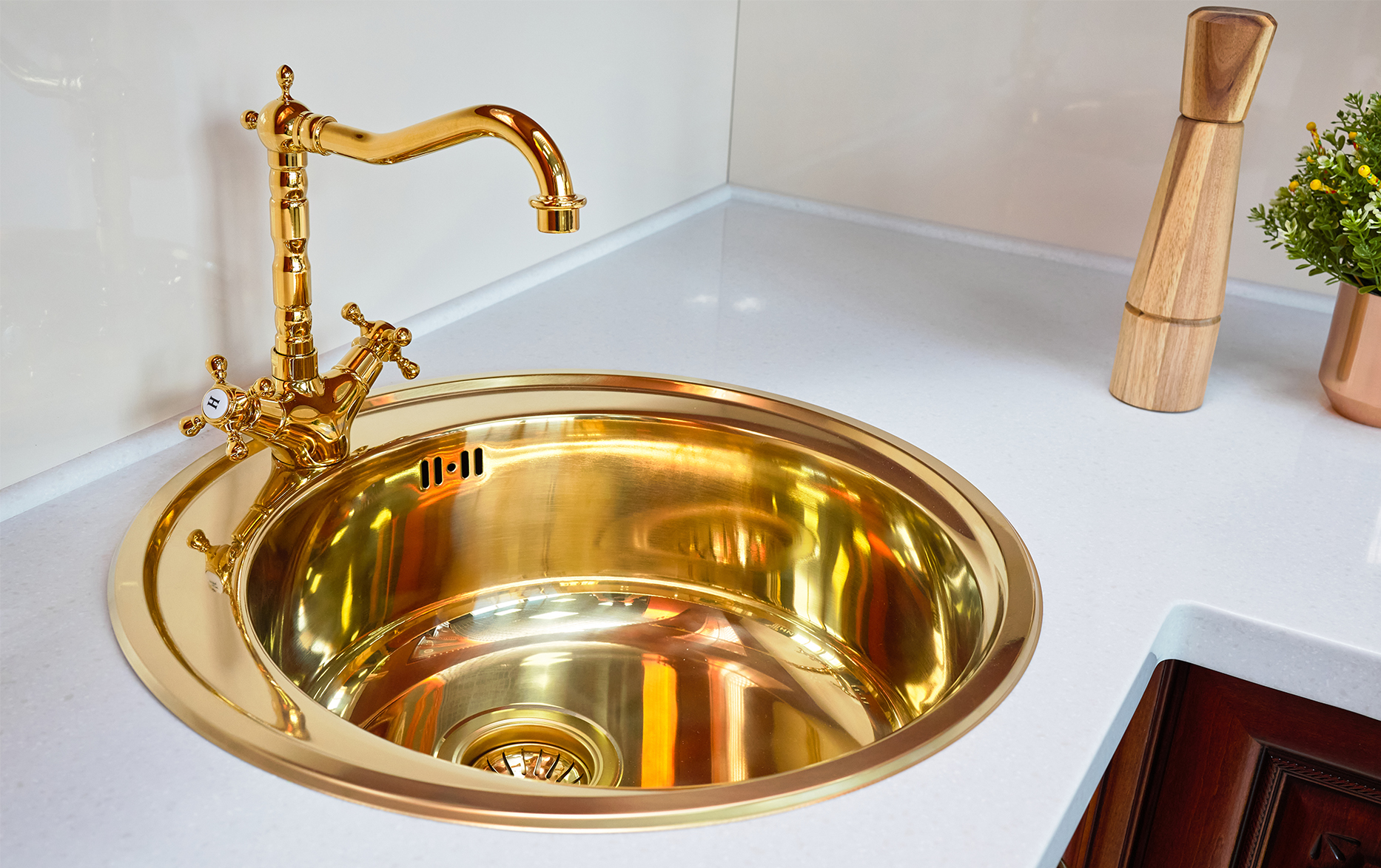
Aesthetic Appeal:
Clean faucets enhance the overall aesthetic appeal of your bathroom or kitchen. Consider the following reasons:
- Maintaining cleanliness: Clean, well-maintained faucets contribute to an overall cleaner and more pleasant environment.
- Preventing discoloration: Mineral deposits, sediment, and rust can cause discoloration and staining on faucets, detracting from their visual appeal. Regular cleaning helps maintain the shiny and pristine appearance of faucets.
- Refreshing the space: When the faucets in your bathroom or kitchen are clean, it can give the entire space a refreshed and inviting look.
Conclusion:
Cleaning your faucets regularly is essential to maintaining their appearance, functionality, and hygiene. By using the proper tools and supplies, following the basic cleaning steps, and incorporating natural remedies for mineral deposits, you can keep your faucets sparkling clean. Additionally, taking preventive measures such as wiping down the faucets and installing a water softener can help minimize future buildups. By dedicating time to faucet maintenance and cleanliness, you can ensure the longevity and efficiency of your faucets while maintaining a beautiful and well-maintained bathroom or kitchen.
